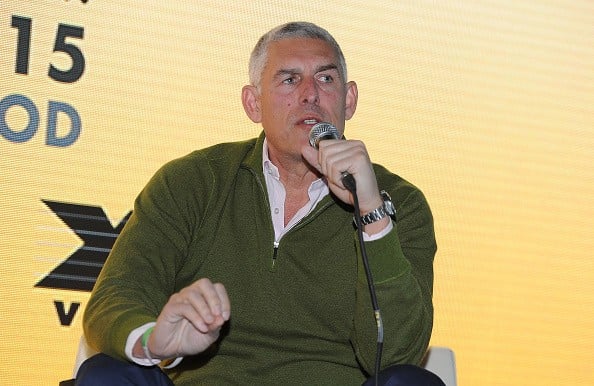Lyor Cohen at a Glance
What is Lyor Cohen’s Net Worth?
Lyor Cohen, a prominent figure in the music industry, has amassed a net worth of $150 million. His career spans several decades and includes significant roles in the growth and success of multiple record labels and digital platforms. Cohen’s influence extends from managing early hip-hop stars to shaping the landscape of music distribution in the digital age.
Early Life and Background
Born in New York City on October 3, 1959, Lyor Cohen’s upbringing was shaped by his Israeli immigrant parents. He spent his formative years in Los Angeles, attending Marshall High School before pursuing higher education at the University of Miami. He graduated in 1981 with a degree in global marketing and finance. Following graduation, he entered the professional world with a position at Bank Leumi’s Beverly Hills office. His brother, Daniel Shulman, also found success as a bass guitarist.
Rush Productions: Building a Hip-Hop Empire
Lyor Cohen’s career trajectory shifted when he began promoting shows for Run-DMC and Whodini at The Mix Club in Hollywood. In 1984, he joined Russell Simmons’ Rush Productions (later known as Rush Artist Management). Starting as Run-DMC’s road manager, Cohen quickly ascended the ranks. By 1987, he was signing artists to the label, including DJ Jazzy Jeff & the Fresh Prince, A Tribe Called Quest, and Slick Rick. These acts became cornerstones of hip-hop’s golden age, and Cohen played a crucial role in their early success.
Cohen’s business acumen extended beyond artist management; he brokered lucrative endorsement deals. He secured partnerships for Run-DMC with Adidas and New Coke, for Jazzy Jeff & the Fresh Prince with Le Coq Sportif, and for LL Cool J with Troop sportswear. He quickly earned a reputation for his astute negotiating skills and a pragmatic approach to business. Under Cohen’s leadership, Rush was widely recognized as the premier management operation in the rap industry during the late 1980s. Around this time, he and Simmons established Rush Associated Labels, which maintained ties to Def Jam and its related labels. In 1994, Cohen played a key role in facilitating Def Jam’s transition from Sony Music to PolyGram, and by then, he was actively managing Def Jam’s day-to-day activities.
Def Jam: The Pinnacle of Cohen’s Influence
Following the 1998 merger between PolyGram and Universal, Def Jam, along with Mercury and Island Records, was consolidated into The Island Def Jam Music Group. Cohen was appointed co-president of the label, expanding its roster beyond rap artists. This included stars like Mariah Carey, Bon Jovi, Elvis Costello, and Shania Twain. His impact on the label’s success was significant, and he was involved in pivotal acquisitions and distribution deals, such as Def Jam’s 2001 purchase of heavy-metal label Roadrunner Records and a distribution agreement with Rick Rubin’s American Recordings.
Warner Music Group: A New Chapter
In 2004, Cohen left Def Jam to join Warner Music Group. There, he oversaw the merger of Atlantic and Elektra Records. He promoted Julie Greenwald, a protégé, to a top executive position at Atlantic. In 2009, Greenwald was elevated to chairman and CEO of Atlantic, becoming the highest-ranking female executive at a U.S. record company. In 2006, Cohen facilitated a landmark deal between YouTube and Warner Music, marking the first time a major record company licensed content to YouTube. This was followed by an agreement with Spotify in 2011, further establishing Cohen’s influence in the digital music space.
YouTube and 300 Entertainment: The Digital Frontier
Cohen’s career took another turn in September 2012 when he departed from Warner Music and launched 300 Entertainment. Described by “XXL” magazine as “part label, part marketing company, part distributor,” 300 Entertainment was backed by Google and Atlantic Records. During his tenure at 300 Entertainment, he continued to push boundaries in the industry. He stepped down from 300 Entertainment in 2016 to accept a position as YouTube’s Global Head of Music. This move underscored his vision and commitment to the evolving digital landscape of music.

Getty Images
Personal Life: Family, Relationships, and Advocacy
Lyor Cohen’s personal life includes two marriages. He first married model E.K. Smith on April 1, 1988, after they met on the set of the Beastie Boys’ video for “(You Gotta) Fight For Your Right (To Party).” Following their divorce, Cohen married Amy in 1990 and they had two children, Az (born June 13, 1994) and Bea (born September 2, 2001), before divorcing in 2006. In a remarkable instance of family support, Az Cohen played a vital role in saving his father’s life during a pulmonary embolism at Brooklyn’s Barclays Center in 2016, while Lyor was attending the N.W.A Rock and Roll Hall of Fame induction ceremony. In August 2016, Lyor married Xin Li, a model and former basketball player who is the deputy chairman of Christie’s Asia.
Beyond his professional accomplishments, Cohen has demonstrated a commitment to philanthropy and community involvement. He served as a board member for the Rock and Roll Hall of Fame and acted as the director of Boys & Girls Harbor, a New York-based nonprofit organization.
Real Estate: Cohen’s Property Investments
Lyor Cohen’s real estate ventures reflect his financial success. In 2000, he acquired an Upper East Side townhouse for $9.175 million and subsequently listed it for $28 million in 2010. He sold the property in late 2012 for nearly $25 million. Further expanding his real estate portfolio, Cohen purchased a 4,440-square-foot townhouse in New York City in 2014 for $11.4 million, below the original asking price of $14.5 million.
/**/

